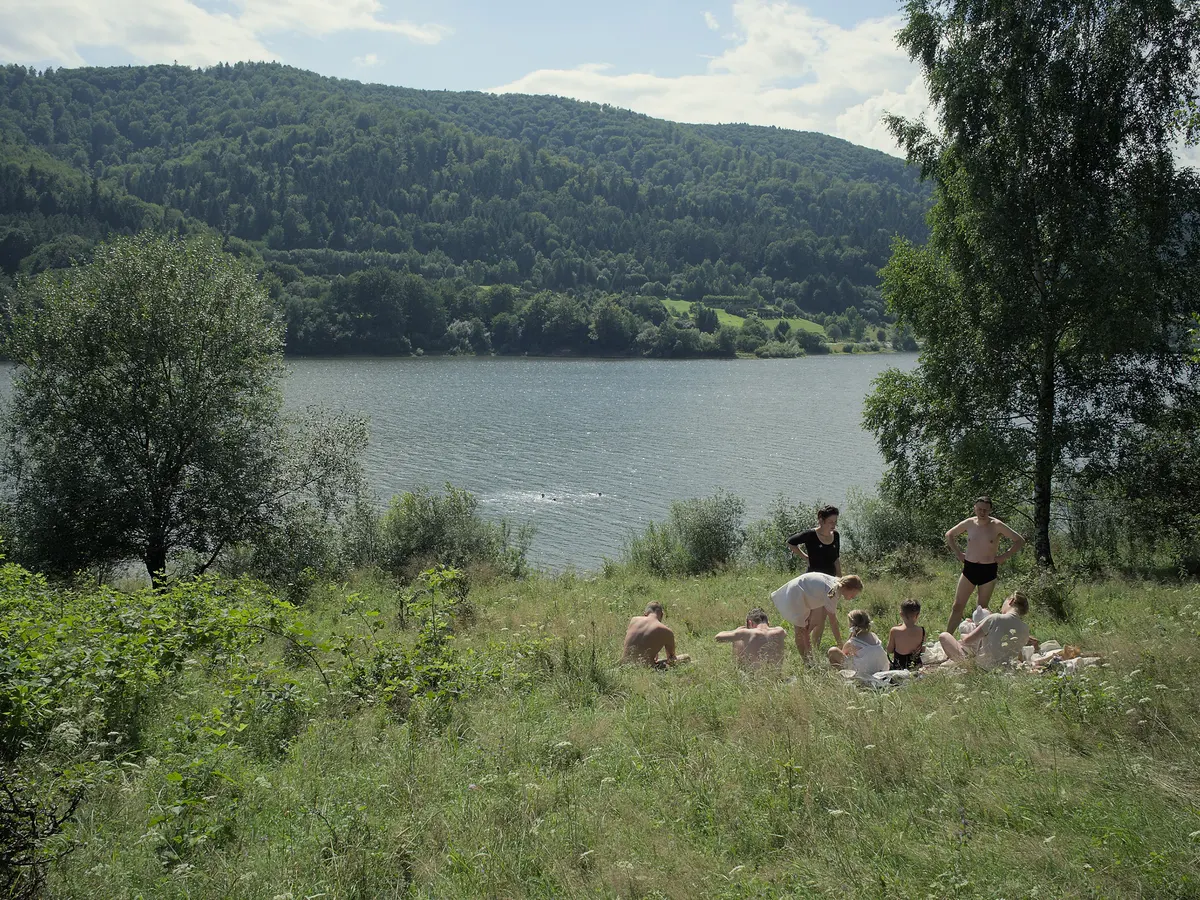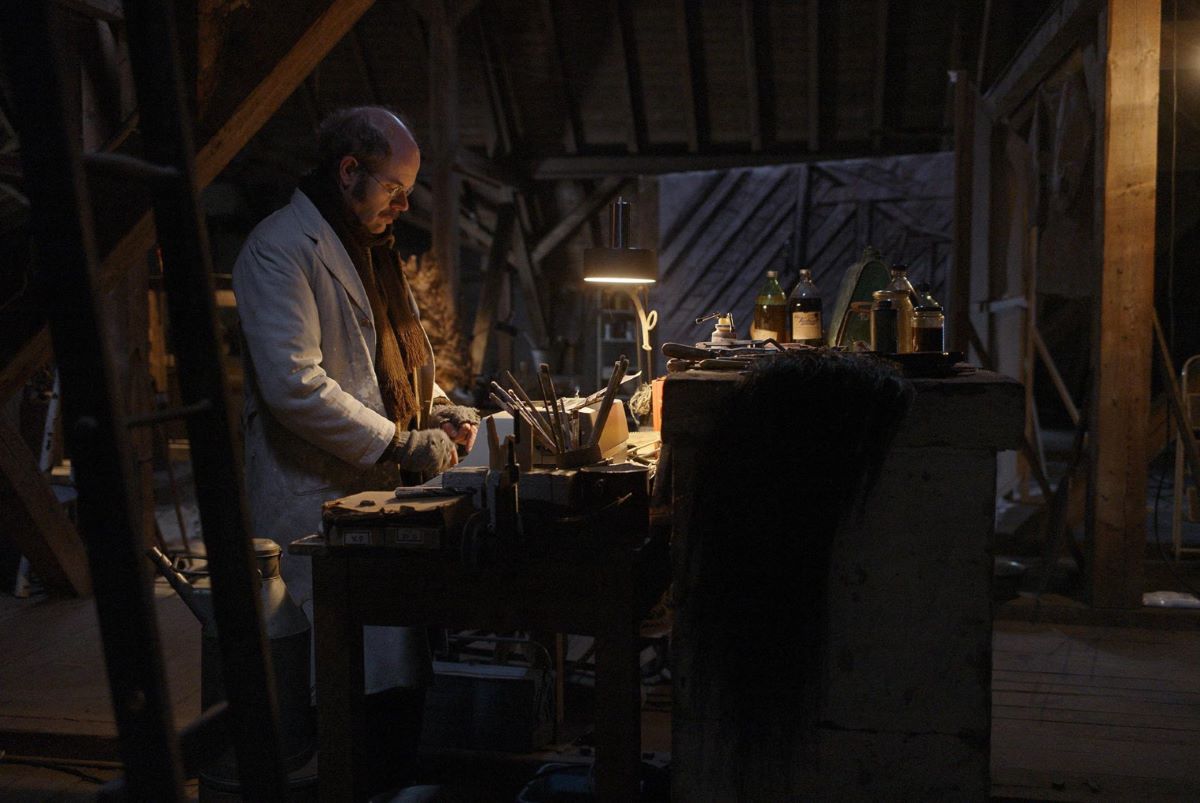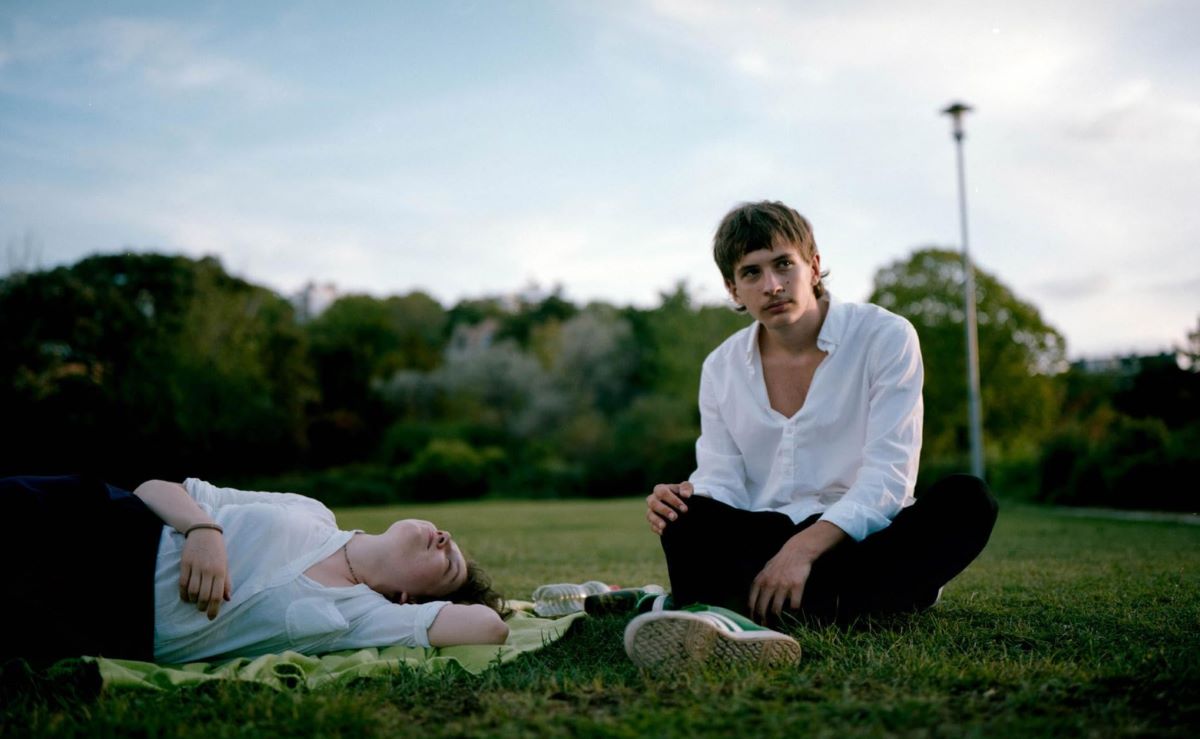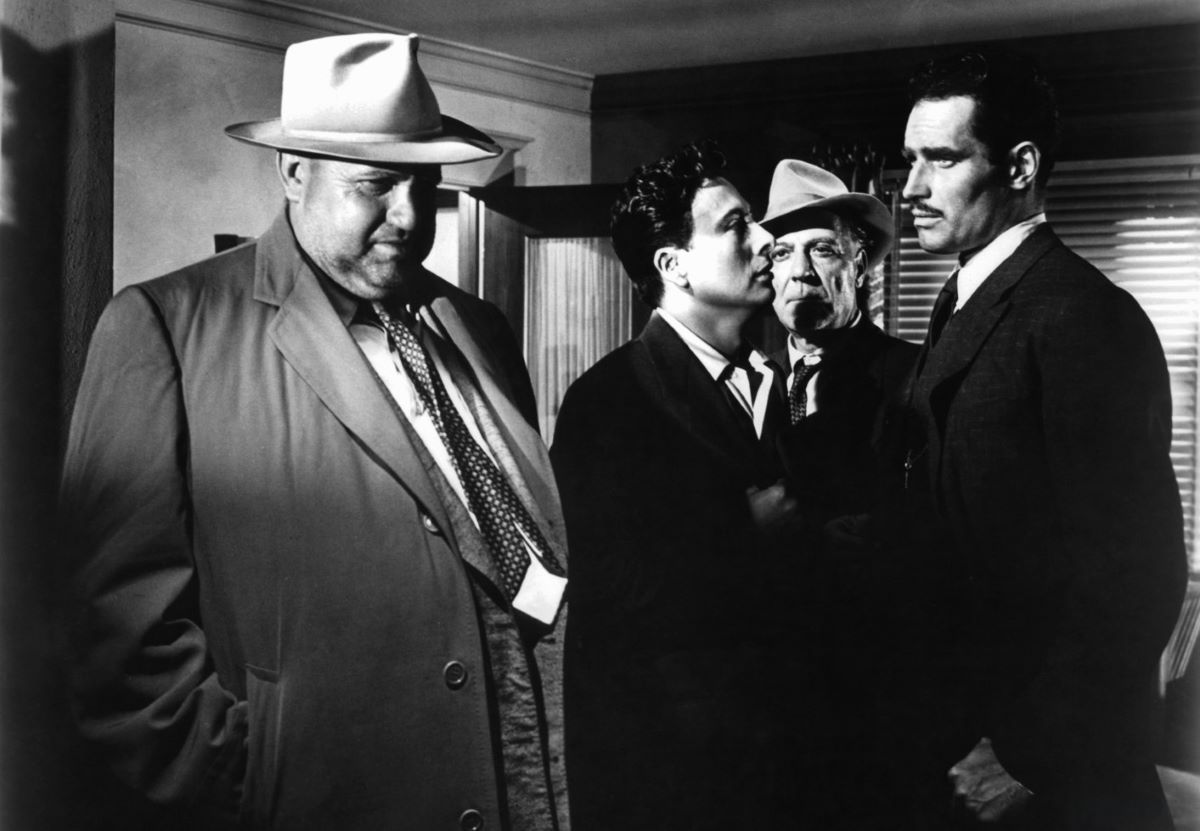by Alessandro Uccelli
In Jonathan Glazer’s latest film, the essence of Martin Amis’ novel The Zone of Interest is distilled primarily into the concept evoked by its title. It alludes to a space, a dwelling over which the converging interests of the protagonist couple stretch, but it’s also a euphemistic description, a circumlocution to avoid detailing what happens beyond the enclosing wall, right next door. A house with a garden, a vegetable patch, a pool. Hedwig and Rudolph’s “respectable,” if not elegant, home, their entire nest enclosed, sheltered by a clear fence; the rest, the vast majority of the rest, are smoke and off-stage noises: a potential earthly paradise, situated next to an active hell. But the very notion of paradise is born from an act of selection, of exclusion: pairidaêzãn in Zoroastrian texts is precisely the enclosure, from which comes the Greek paradeisos. It’s not the first time we’re reminded of this, perhaps precisely because cinema has always grappled with the idea of an earthly paradise, hortus conclusus, or at least a comfort zone, from both sides of that fence, that diaphragm, which is the screen: the “classic” viewer sits safely in their semi-amniotic seat, and in front, on the screen, a universe is agitated within four immaterial walls, “a world that corresponds to our desires,” to quote the apocryphal Bazin. But it’s a mechanism that has been in crisis for a long time, and which perhaps today has shifted to the ephemeral promises of the metaverse. And then, in this case, to which desire does it respond?
After a sort of overture to a black screen, with the first cacophonous sound texture by Mica Levi, almost the equivalent of a disturbing waiting room, a space for sensory deprivation (goodbye comfort zone), but also in some ways the anticipation of the disjointed and disharmonic sounds that will soon be a continuum emanating from the bottom of the frame, Glazer draws inspiration from Amis’ anticlimactic narration and entrusts the screen, with small accumulations, with something that connects to the desires of his protagonists. On one side is the dream of a more robust military glory of Rudolph Höss, and on the other, that of his bourgeois wife Hedwig, immersed in a ten-room villa plus bathrooms built on land adjacent to the Auschwitz camp. And, at least initially, he does so almost exclusively with cameras operated by a sensor, positioned like closed-circuit TV cameras, generating almost exclusively long shots and a non-selective recording and distribution of sound, in which the muffled cry of the victims constantly mixes like a distorted echo. An imagery that sometimes gets contaminated with scenes edited with negative pieces, the imagination of Höss’s children who, away from that house, take on the body of civil resistance: the negative of the digital image, on the other hand, is not the generative matrix of the positive, as it was with film, but is its opposite, or anyway a mutation of it.
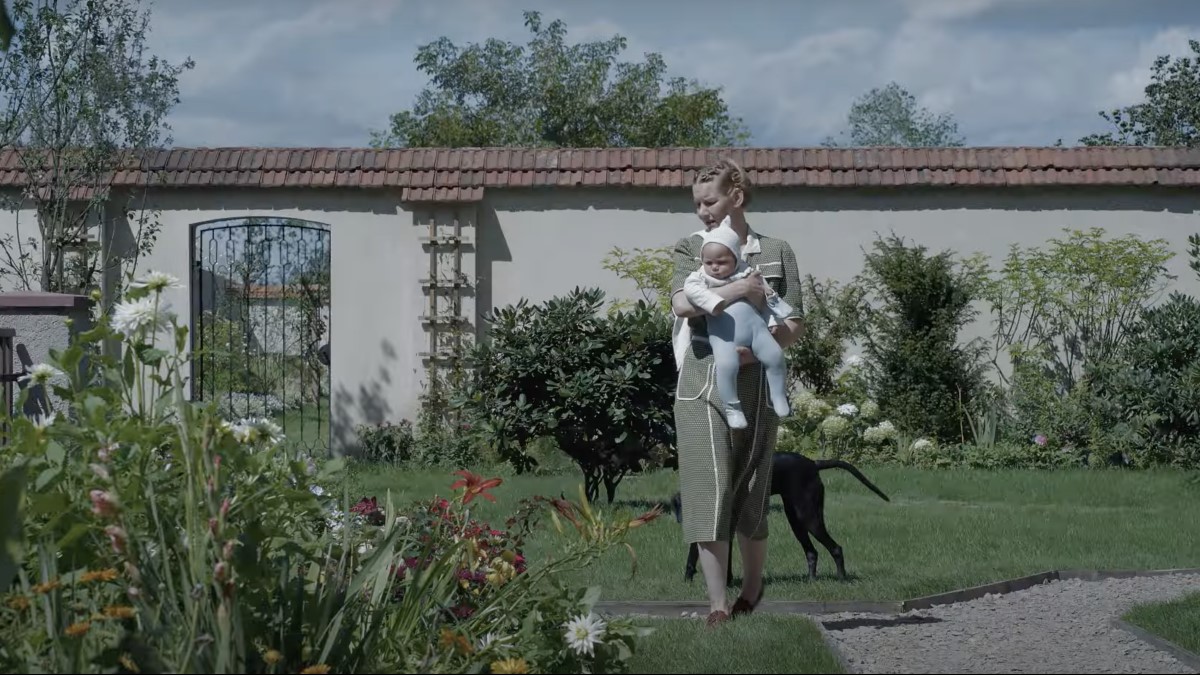
Glazer (with casting director Simone Bär) entrusts the two key roles to Christian Friedel (The White Ribbon, Amour Fou) and Sandra Hüller (Toni Erdmann, Anatomy of a Fall), who wear them with a cold naturalness, without the forced caricatures “required” by films about Nazism, the symptoms of the neuroses that accompany them: he apathetic, pale, and slightly swollen, she, characterized by a mild limp, like a true middle-class lady, manages the house, educates the children, receives visits, and recovers, when she can, the “nice things,” those that the people beyond the wall will never wear again. When Rudolph is assigned to a new task, the primary concern is not to lose the privilege of living in that “paradise,” even at the cost of accepting compromises, of not giving up those joyful family gatherings by the pool; alienating moments that not coincidentally echo two famous Lucas Cranach paintings: the Fountain of Eternal Youth and The Golden Age, both in absolute continuity with the mythologies that Nazism fed on, and the latter literally set within the walls of a timeless garden. Time in the film rushes forward, in flash-forwards, and for a moment passes to the other side of the wall, in contemporary Auschwitz-attraction, to show the somewhat paradoxical operations of cleaning a space that cannot and must not be cleaned.
There’s not much else in The Zone of Interest, and yet there’s everything: at least there’s the only way still possible to tell the story of the extermination camp, through its counterfield and off-screen. The life of the unjust, the normality, if not the banality, of evil, through its nourishment of the desires of a couple from a consumer romance. Desires projected where we once deluded ourselves into finding something that resembled ours.
Cineforum, October 19, 2023

